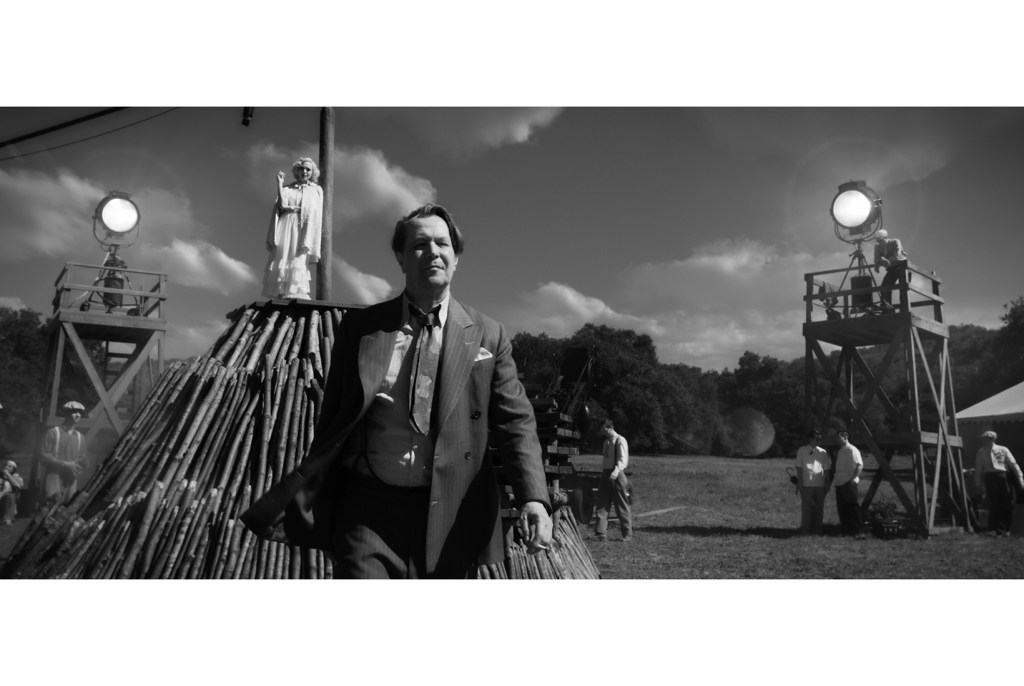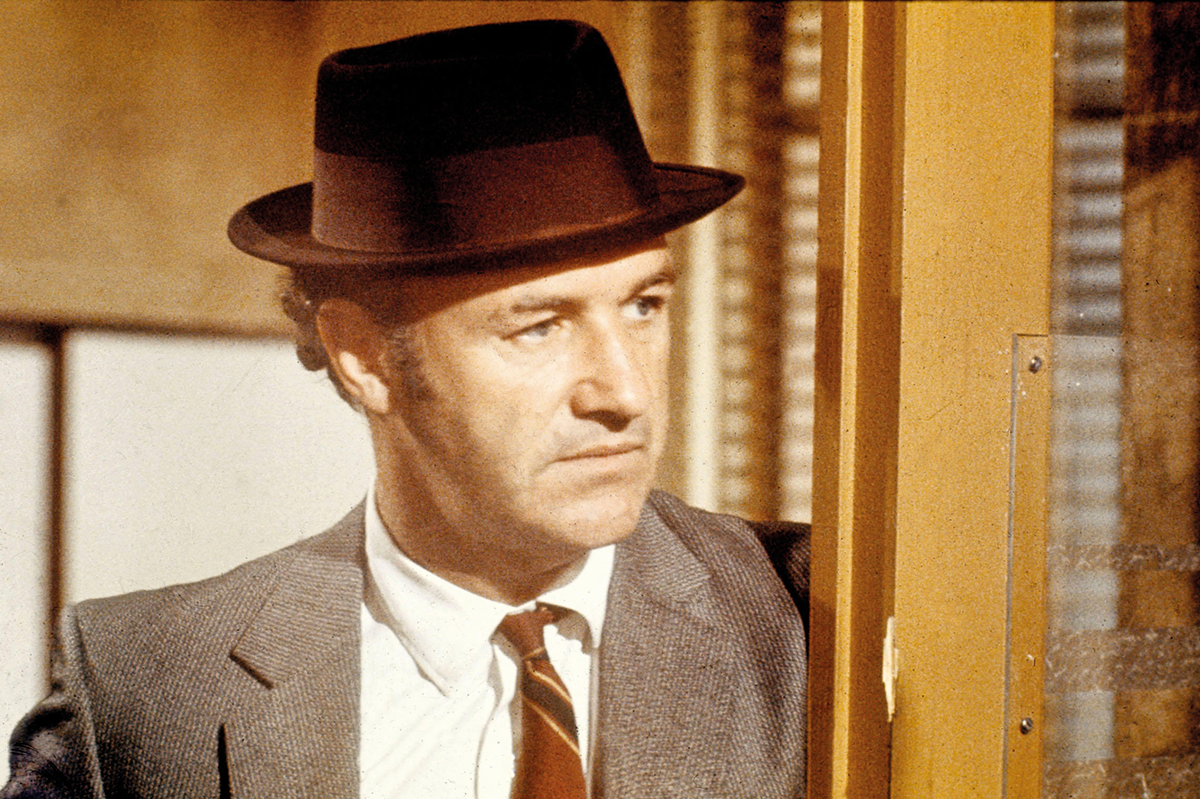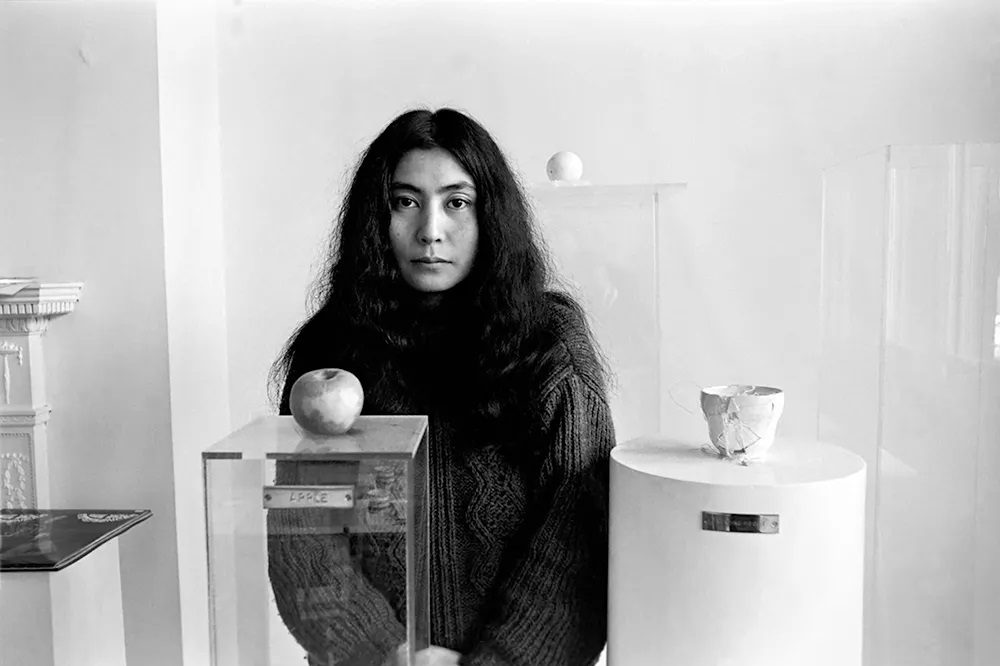When talkies appeared in 1927, Hollywood went searching for talkers to write them. It turned to men like Herman J. Mankiewicz: to journalists. The greatest screenwriters of the golden age were journalists first; unlike novelists, they thrived in Hollywood — at least professionally. Good films and good journalism need brevity; novels don’t. Reading about F. Scott Fitzgerald struggling at MGM, 12 years after The Great Gatsby, is brutal, like trying to watch a man learn to walk.
The film Mank, by David Fincher, tells the story of how Mankiewicz and Orson Welles created Citizen Kane — for which they shared an Oscar for the screenplay in 1942 — and how they bickered over the credit. Despite Pauline Kael’s vast 1971 essay ‘Raising Kane’, which accused Welles of credit theft, it’s a red herring, a McGuffin — a rosebud, if you will. Welles himself put Mank first in the credits; and Welles wouldn’t do that without cause.
The rediscovery of Mank is an opportunity to examine the men who made the Hollywood golden age: not how it looked — that is for the lovely blank of stars and their lighting cameramen — but its noise.
Mank was a drunk, a wit and a gambler: ‘the Voltaire of Central Park West’. He was a playwright and drama critic at the fledgling New Yorker and the New York Times. Once, so depressed at an appalling performance of the teenage Lady Teazle in A School for Scandal — she was played by the producer’s 56-year-old wife — he passed out as he wrote the review: ‘Miss Gladys Wallace, an aging, hopelessly incompetent amateur…’. This scene appears in Citizen Kane. Mank went to Hollywood ‘in pursuit of a lump sum’. He never forgave himself.
Kael said that Mank wrote ‘about forty of the films I remember best from the twenties and thirties’. But he could not be happy. ‘I seem to become more and more of a rat in a trap of my own construction, a trap that I regularly repair whenever there seems to be danger of some opening that will enable me to escape,’ he said. Mank was punished for an infraction at work by being forced to script a film for Rin Tin Tin, a heroic German shepherd who appeared in a series of stupid films. Mank wrote a story in which the dog took a baby into a burning house.
It was Mank who sent the famous cable to his broke fellow journalist Ben Hecht, who was reading Gibbon’s Decline and Fall of the Roman Empire in bed: ‘Will you accept three hundred per week to work for Paramount Pictures. All expenses paid. The three hundred is peanuts. Millions are to be grabbed out here and your only competition is idiots. Don’t let this get around.’
Hecht was as contemptuous as Mank of cinema: ‘My composite memory of all the movies I have seen,’ he said, ‘is that of a lady, suffering from adenoids, about to be ravished by an unshaven fellow in a Mackinaw. Dimly, on the outskirts of this tableau, I seem to see a dog sled, a gentleman in a checked suit offering somebody a cigar, and over it all a sentence reading: “With hearts a-tremble they turned their faces to the new day.”’
His background was crime reporting in Chicago among ‘a tribe of assorted drunkards, poets, burglars, philosophers and boastful ragamuffins. Supermen with soiled collars and holes in our pants, stony broke and sneering at our betters in limousines and unmortgaged houses. Cynical of all things on Earth including the tyrannical journal that underpaid and overworked us and for which, after a round of cursing, we were ready to die.’ He did not feel that way about cinema. He wrote a poem about it:
‘Good gentlemen who overpay/ Me fifty times for every fart,/ Who hand me statues when I bray/ And hail my whinnying as Art —/ I pick your pockets every day/ But how you bastards break my heart.’
Hecht invented the gangster film with Underworld in 1927. He wrote it in a week. It won the first screenwriting Academy Award, but he sent it back, explaining later that ‘receiving a prize for this piece of good hack work was annoying because I was a man of letters’. In 1968 Jean-Luc Godard called him ‘a genius’ who ‘invented 80 percent of what is used in Hollywood movies today’. According to his biographer Adina Hoffman: ‘He helped to concoct or refine entire genres, not just the gangster film but the newspaper picture, the action movie, the noir, the historical epic, the screwball comedy.’
‘I have written many stories about Hollywood,’ he wrote, ‘and made much fun of its clap-trap splendors. I have criticized its whirligig castrations of the Arts, its triumphs over sanity, and its coronation of buncombe. But in nearly all I have written there has been a lie of omission. I neglected to say that all these things I loved.’
Hecht and Mank are usually called cynical; but it was Hollywood that was cynical. Their cynicism was really a thwarted romanticism.
If Mank turned to alcohol, Hecht turned to Zionism. He said he became a Jew in 1939. He had written a novel called A Jew in Love and predicted the Holocaust. He published an open letter to the ‘Terrorists of Palestine’ in the New York Post in 1947: ‘Every time you blow up a British arsenal, or wreck a British jail, or send a British railroad train sky high, or rob a British bank, or let go with your guns and bombs at the British betrayers and invaders of your homeland, the Jews of America make a little holiday in their hearts.’
British distributors barred all films with his name on the credits. It was Nazi Germany, though, that took Billy Wilder’s credit off the screen — or, to give him his real name, Shmuel Vildr. The name change is typical of him; he could not agree on any narrative of his life, and so created multiples. Unlike Mank and Hecht, who were second-generation Jewish immigrants, Wilder was born in what is now Poland. He lived as a journalist and screenwriter in Vienna and Berlin, where he befriended Marlene Dietrich and Peter Lorre. He fled to Paris the day after the Reichstag fire in 1933 (or at least that week; he was not a reliable memoirist). A job for Columbia Pictures took him to America, though he had to leave six weeks later and talk his way back in from Mexico.
English was his fourth language, which I marvel at. He avoided the émigrés who thought they would go home again and instead learnt English from the radio. ‘I had the feeling,’ Wilder said, ‘I was not in the right country and I didn’t know if there was a right country for me.’ Even so, a Berlin friend said that Wilder, when in Germany, ‘with his hat tilted on his head and hands in the pockets of his pants, was already playing the American while we still hadn’t discovered America at all’.
The three were secure in Hollywood during the Holocaust that killed Wilder’s mother, stepfather and grandmother. He went to Europe in 1945 and found no trace of them. He was asked in Germany if he thought a former Nazi could play Christ in the passion play at Oberammergau. He replied: ‘Yes, as long as the nails are real.’
[special_offer]
Wilder was funny, ever-moving, unknowable and likely sex-addicted. He was the most precise, the least self-destructive and the bleakest of the three. Sunset Boulevard is still the most truthful film about Hollywood, although he was forced to cut the initial opening in which the dead sit up and speak. The Lost Weekend is about alcoholism; Double Indemnity is about the inevitability of betrayal; so is Ace in the Hole, in which a journalist exploits a story with deadly results. But Wilder is always jaunty. ‘Mr Boot,’ says his journalist, ‘I’m a $250 a week newspaperman. I can be had for $50. I know newspapers backward, forward and sideways. I can write ’em, edit ’em, print ’em, wrap ’em, and sell ’em. I can handle big news and little news. And if there’s no news, I’ll go out and bite a dog. Make it $45.’
‘His real theme,’ said the New Yorker, ‘is identity. A young screenwriter allows himself to be dressed like a plutocrat and makes love to a woman who appalls him [Sunset Boulevard]. A saxophone player puts on drag, then a yachting costume, and starts sounding like Cary Grant [Some Like it Hot]. Who are these guys?’
All had the guilt of the immigrant, for they were the lucky ones. Survival is a complex gift and they honored America and shamed themselves. They changed America too: they wrote it a dazzling vernacular filled with the longing, and the sorrow, of the outsider.
Mank is released on Netflix on December 4. This article was originally published in The Spectator’s UK magazine. Subscribe to the US edition here.

























